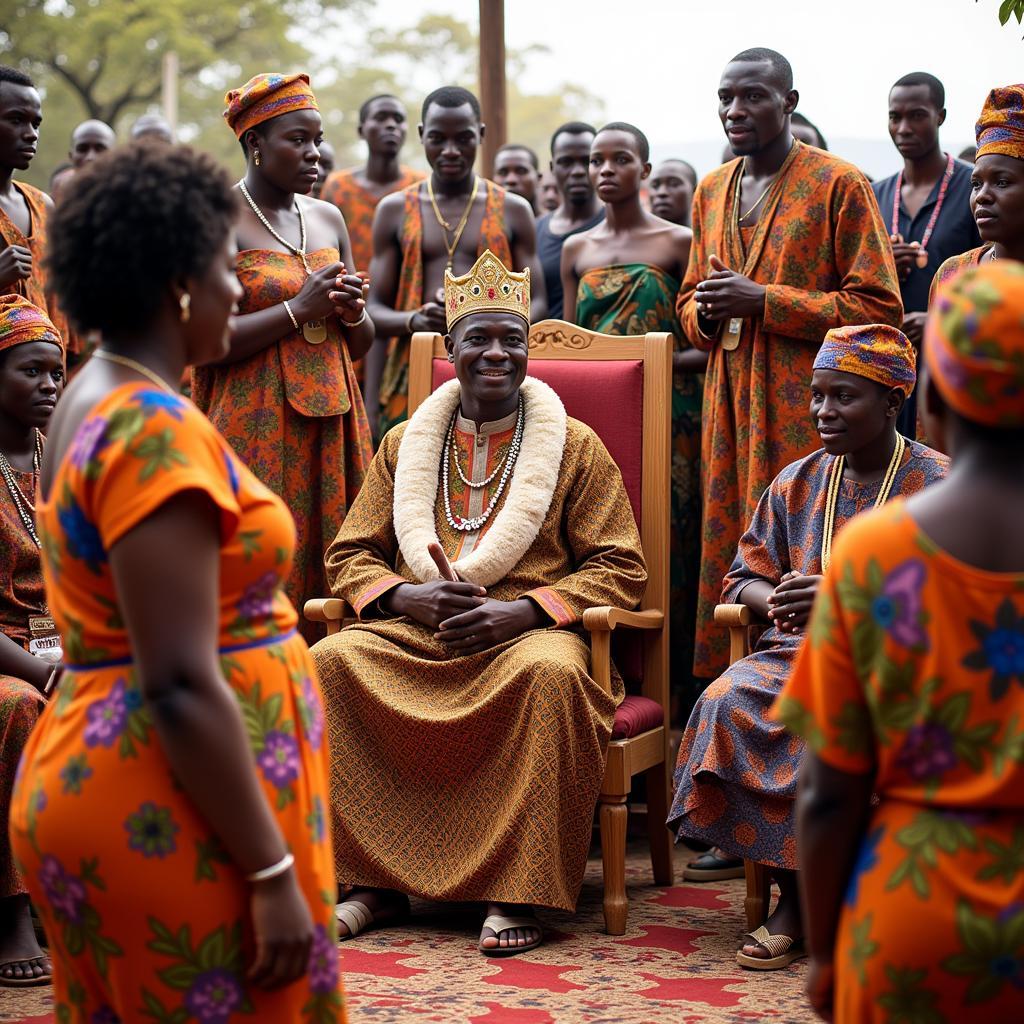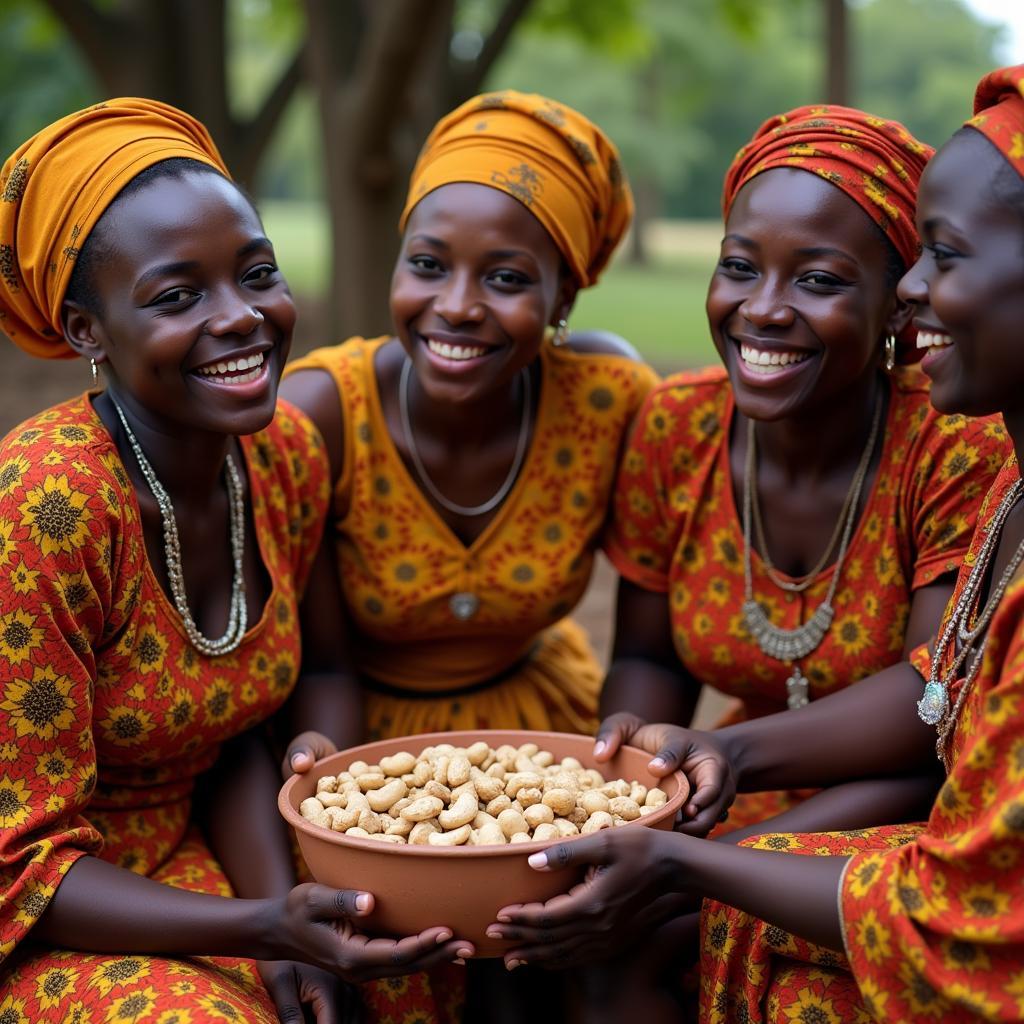Exploring African Countries and Regions: A Deep Dive into Nigeria
Nigeria, a vibrant tapestry of cultures and traditions, stands as a giant in West Africa, boasting the largest population on the African continent. With over 250 ethnic groups, a rich history, and a booming economy, Nigeria offers a captivating glimpse into the heart of Africa. This exploration delves into the multifaceted aspects of this fascinating nation, from its geographical diversity to its cultural richness.
Unveiling Nigeria’s Diverse Geography and Regions
Nigeria’s landscape is as varied as its people, ranging from the lush rainforests of the south to the sprawling savannas of the north. The country is divided into 36 states and one Federal Capital Territory, each with its unique characteristics.
- The North: Dominated by the dry savanna, the north is home to the ancient cities of Kano and Sokoto, renowned for their historical significance and Islamic scholarship.
- The South: Characterized by its tropical rainforests and coastal plains, the south boasts bustling cities like Lagos, the nation’s commercial hub, and Port Harcourt, a major oil-producing center.
- The Middle Belt: This region acts as a transition zone between the north and south, encompassing a mix of ethnic groups and geographical features.
This geographical diversity translates into a rich tapestry of ecosystems, making Nigeria home to a vast array of flora and fauna.
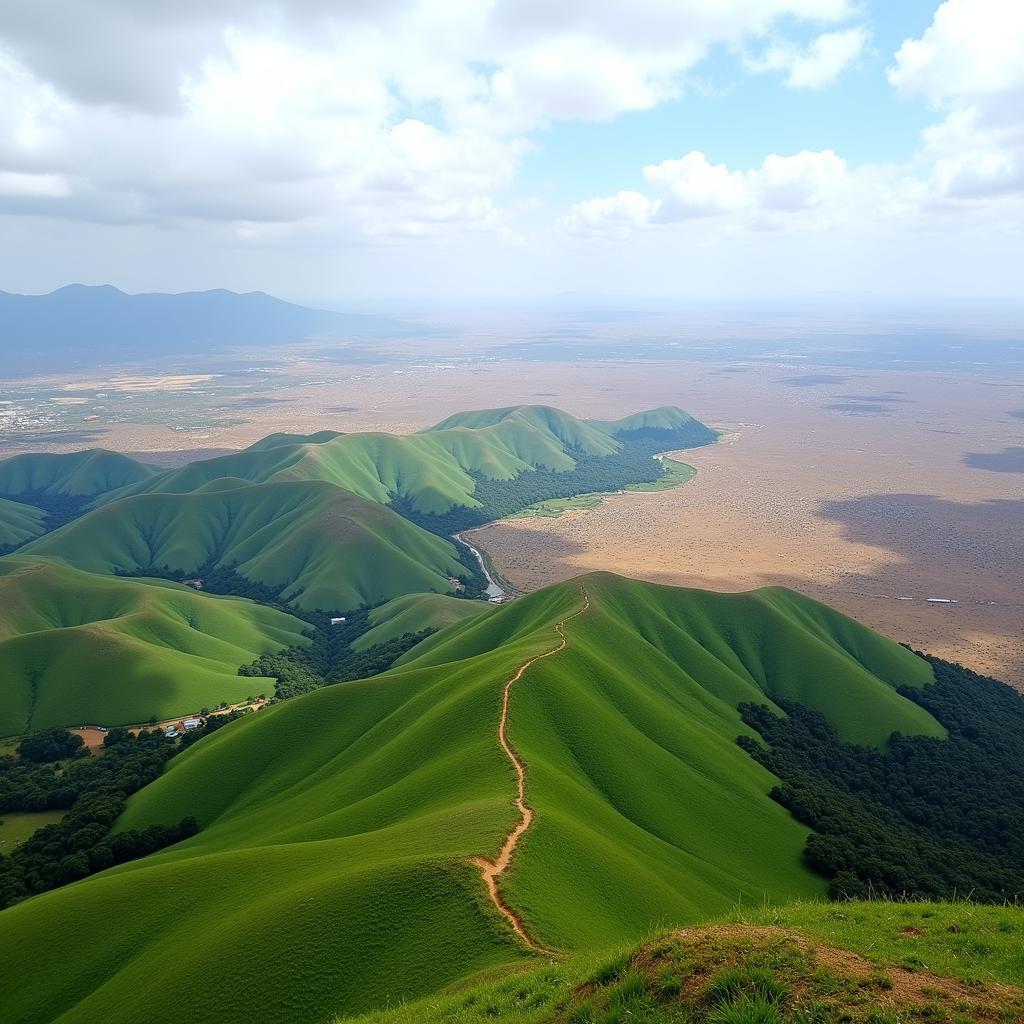 Nigerian Landscape
Nigerian Landscape
Delving into Nigeria’s Cultural Tapestry
Nigeria’s cultural landscape is as vibrant as its geography. With over 250 ethnic groups, each with its unique language, traditions, and art forms, the country offers a captivating blend of cultural expressions.
- Yoruba Culture: Concentrated in the southwest, the Yoruba people are known for their elaborate masquerades, intricate beadwork, and rich oral traditions.
- Igbo Culture: Predominantly found in the southeast, the Igbo people are renowned for their entrepreneurial spirit, their colorful festivals like the New Yam Festival, and their intricate bronze casting.
- Hausa-Fulani Culture: Primarily located in the north, the Hausa-Fulani people are known for their vibrant textile industry, their elaborate traditional attire, and their strong Islamic heritage.
These are just a few examples of the many cultural groups that contribute to Nigeria’s rich heritage.
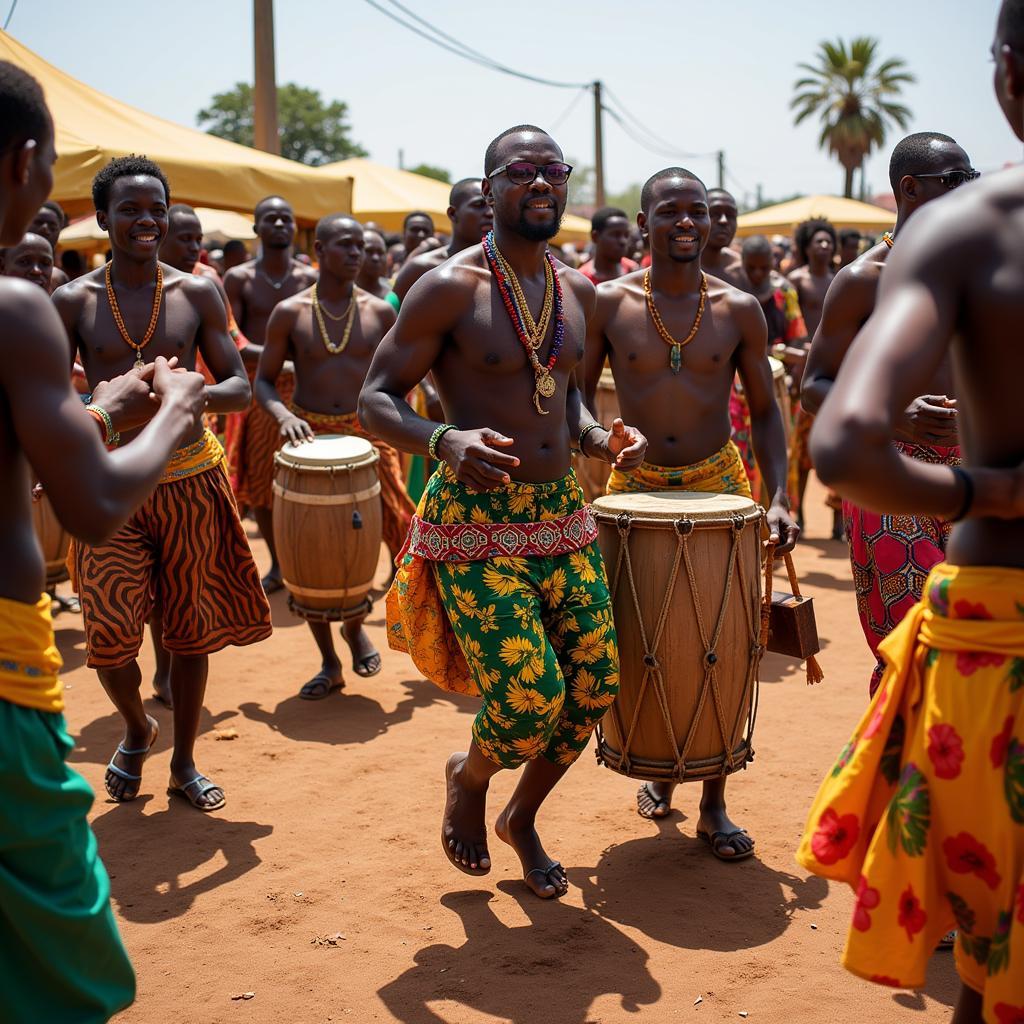 Nigerian Cultural Festival
Nigerian Cultural Festival
Experiencing the Rhythms of Nigerian Music and Art
Nigerian music and art have gained global recognition for their vibrancy and originality. From the infectious beats of Afrobeat to the intricate sculptures of Benin City, Nigerian artistry captivates audiences worldwide.
- Music: Nigeria has given birth to numerous musical genres, including Afrobeat, Juju, and Fuji, with legendary musicians like Fela Kuti and King Sunny Adé achieving international acclaim.
- Art: Nigerian art encompasses a wide range of forms, from traditional Nok terracotta sculptures to contemporary paintings and installations. The country boasts a thriving art scene with artists like Ben Enwonwu and Yinka Shonibare MBE gaining international recognition.
Navigating Nigeria’s Economic Landscape
Nigeria boasts one of the largest economies in Africa, driven by its vast oil reserves and a growing agricultural sector.
- Oil and Gas: Nigeria is a major oil producer, with the oil and gas sector playing a significant role in its economy.
- Agriculture: Agriculture remains a vital part of the Nigerian economy, employing a large percentage of the population. The country is a major producer of crops like cocoa, cassava, and yams.
- Technology: Nigeria has emerged as a hub for technological innovation in Africa, with a thriving tech ecosystem and a growing number of startups.
Understanding Nigeria’s economic landscape provides insights into its potential and challenges.
Exploring Further: Unveiling More of Africa
Beyond the bustling cities and vibrant cultures of Nigeria, the African continent offers a treasure trove of experiences. Explore the diverse culinary delights of the African food network, delve into the rich tapestry of the African continent countries and capitals list, or discover the vibrant online marketplace of African ecommerce websites. The journey through African countries and regions promises to be an enriching experience.
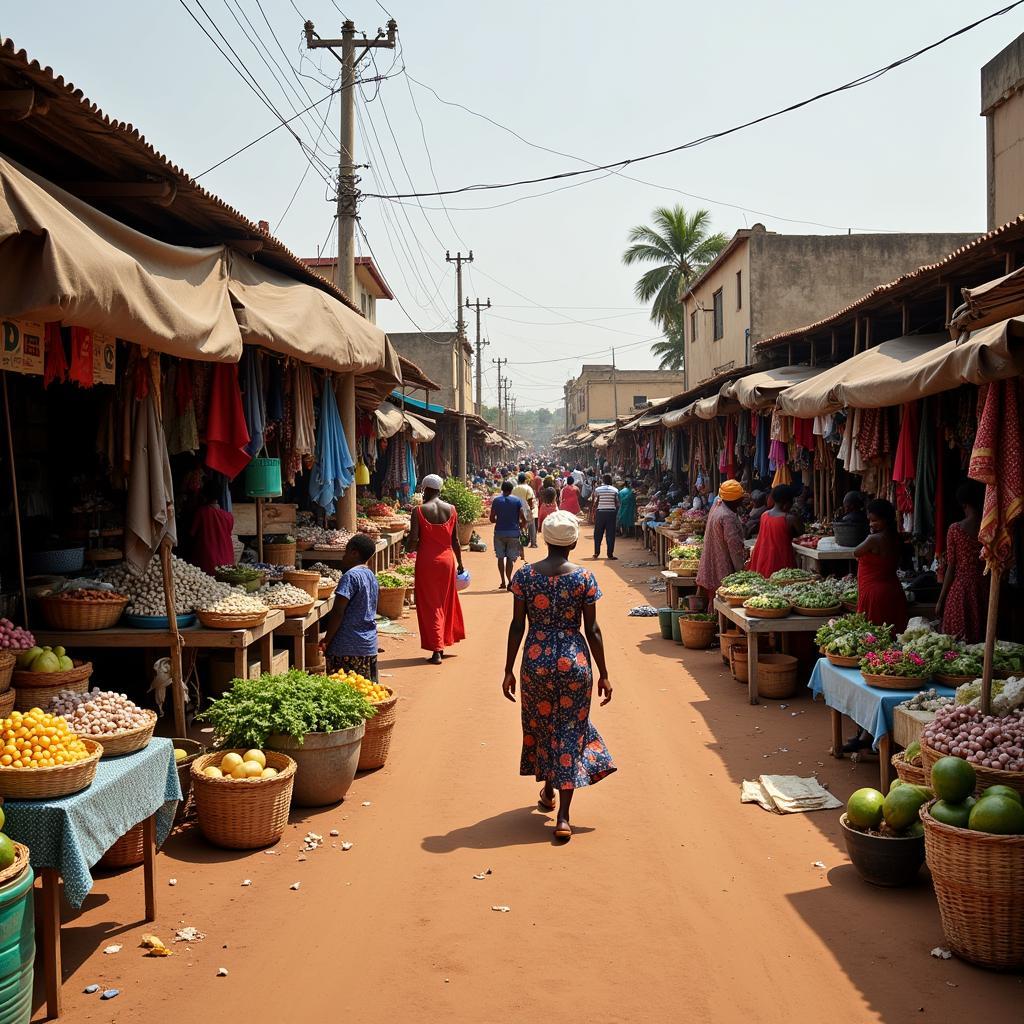 Nigerian Market Scene
Nigerian Market Scene
Conclusion: A Glimpse into the Giant of Africa
From its diverse geography and rich cultural tapestry to its vibrant art scene and growing economy, Nigeria stands as a testament to the dynamism and resilience of Africa. Understanding the complexities and richness of this nation provides a valuable lens through which to view the continent as a whole.
FAQs:
1. What is the official language of Nigeria?
English is the official language of Nigeria.
2. What is the currency of Nigeria?
The Nigerian Naira (NGN) is the official currency of Nigeria.
3. What are some popular tourist destinations in Nigeria?
Yankari National Park, Olumo Rock, and the Nike Art Gallery are popular tourist destinations in Nigeria.
4. What is the best time to visit Nigeria?
The best time to visit Nigeria is during the dry season, which typically runs from November to April.
5. Is it safe to travel to Nigeria?
As with any travel destination, it is important to exercise caution and stay informed about safety guidelines when traveling to Nigeria.
Need Help Exploring Africa?
Contact us at +255768904061, email kaka.mag@gmail.com, or visit our office in Mbarali DC Mawindi, Kangaga, Tanzania. Our dedicated customer support team is available 24/7 to assist you.
We also encourage you to explore more about:
- The captivating world of African cuisine through our African hot pot article.
- The diverse nations that make up the continent with our comprehensive map of African countries.

